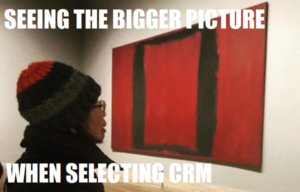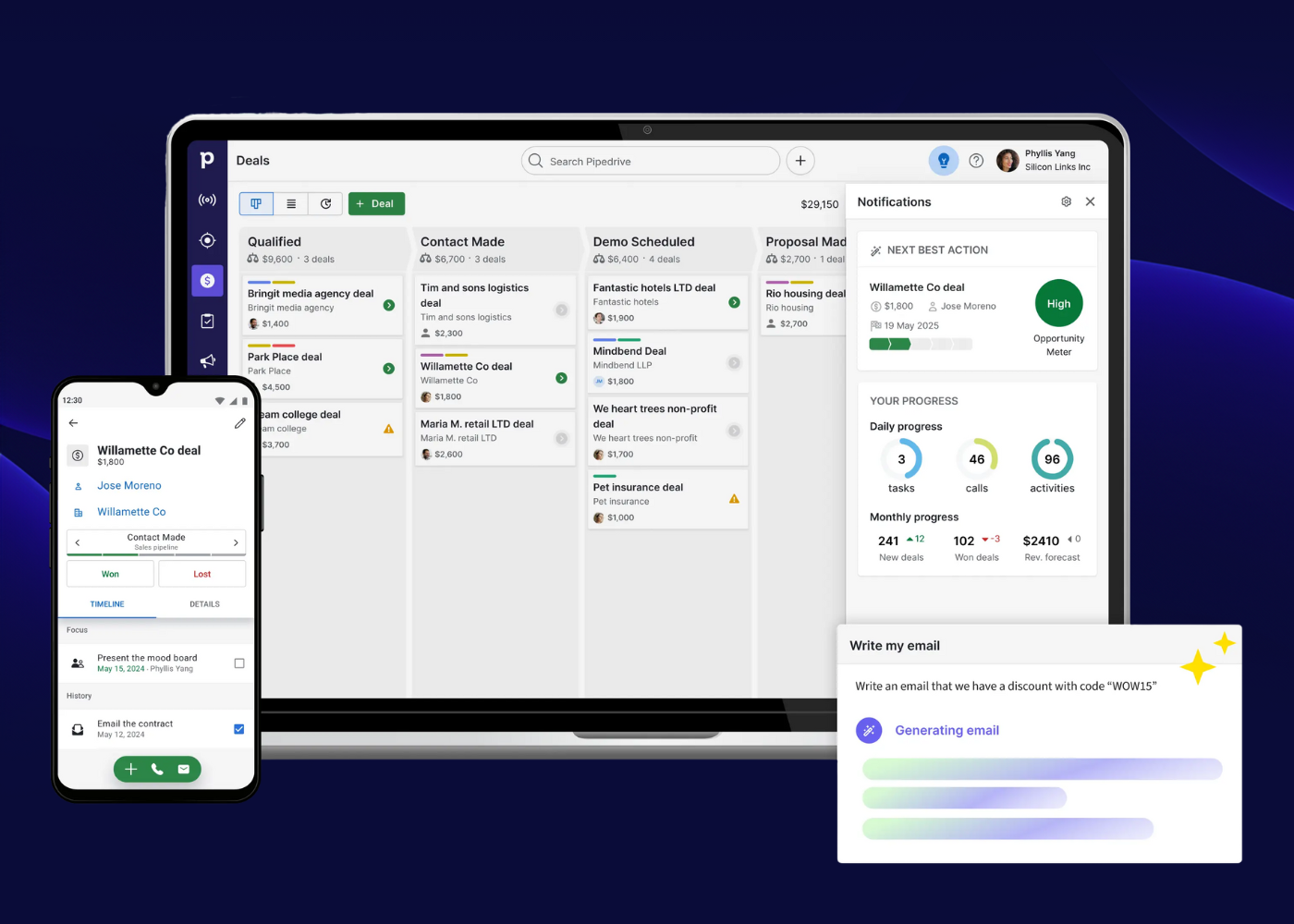There seems to be no shortage of “experts”, who, for a fee, will tell you what CRM software you should buy. Strangely, some of them are also able to sell you the very software they recommend! If you don’t want to be sold software but do need to buy a CRM solution, then this guide is for you. Instead of checking off a list of features to look for, this blog gives 3 practical tips on areas to think about.
1. Scope of your project
How much of your customer relationship do you want to manage? For some, this will be just the sales or marketing functions; for others, it will need to include post-sale customer service and support. Do you need partner relationship management, or would a customer portal improve the way you acquire, retain and develop long term customer relationships?
In the past, it was generally accepted that a single suite of programs from a single vendor was the best way to proceed. Nowadays, software vendors are increasingly specialising, so you may need to select tools from multiple vendors and integrate them to provide your ideal CRM system. A word of caution – whenever you integrate systems, you add complexity and cost. Despite clear technical advantages, it may still make sense to compromise on functionality and select a multi-purpose CRM system from a single vendor. If, however, the engineering team just cannot do without some specialist piece of software to manage ongoing maintenance contracts, then look for an implementation partner with experience of systems integration. Check that your software choices are built to use modern web services and API’s to build integration.
2. Speed of delivery
How quickly do you need your CRM system to be installed and working? If you are running out of time and need to replace an old CRM system, then major Enterprise CRM software projects may not be for you. The time and effort taken to scope, specify and deliver Enterprise CRM has not reduced in the last 20 years. While CRM software is increasingly delivered as Software as a Service (SaaS), the breadth and complexity of CRM has grown to swallow up time saved on installation of software and servers.
Even if you are not chasing a deadline, overly long delivery timescales for your project should be avoided. If the delivery is measured in months and years, changes in staff and processes will ensure that the project never succeeds. Thankfully, most mid-market CRM consultants understand this and will guide you to adopt agile project management techniques that provide rapid and frequent deployment of functionality. Often referred to as Sprints, this method is well suited to delivering CRM to a user population who are accustomed to moving quickly. However, it is worth being aware of “Fake Agile” implementations, where the sprints are measured in months – hardly a sprint.
3. Availability of in-house resource
Even the very largest CRM implementations, where massive amounts of the work are outsourced or off-shored, need the active participation of people across your business. You cannot totally outsource the implementation of a CRM system – although with CRMaaS (CRM as a Service) you can significantly reduce the amount of effort you need to put into it.
Managing people from across your entire business to come together to deliver a CRM project is a significant undertaking. Often, it will reveal internal tensions and politics; egos and empires you never knew existed will emerge and attempt to divert you from your goal. So the first resource whose availability is essential is the project sponsor. This must be someone who sits over all the stakeholder groups and can cut through the politics and reason with the rebellions. Unfortunately, this kind of Executive rarely has the availability needed to push the project through – so you must rely on a project lead.
Note – the project lead should not be confused with the project manager. Whilst the project manager schedules and coordinates resources, the project lead provides leadership. We have seen that project leads are often Executives on a fast track career development path to a senior board role. Success in implementing the CRM project provides them with invaluable insight into the company and its operations, together with credibility across all levels of the business.
The other resource required is more hands on and concentrates on the data to be migrated to the new CRM system. As data is the single biggest challenge when implementing a CRM system, it makes sense to provide more resource here than anywhere else. Sadly, this rarely the case, which results in delays in the project and a reduction in the effectiveness of the system.
With so much to think about, it is unsurprising that many companies will work with 3rd parties to implement their CRM system. Whether you go directly to the software vendor or work with a company with a track record of CRM success in your industry, your choice of partner is critical to the CRM project’s success. Perhaps the best advice on working with partners is, having paid for their advice, don’t be afraid to take it!





